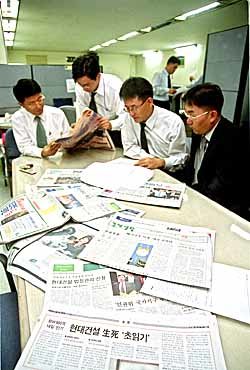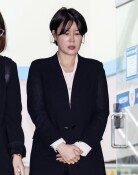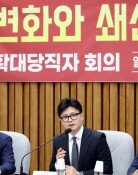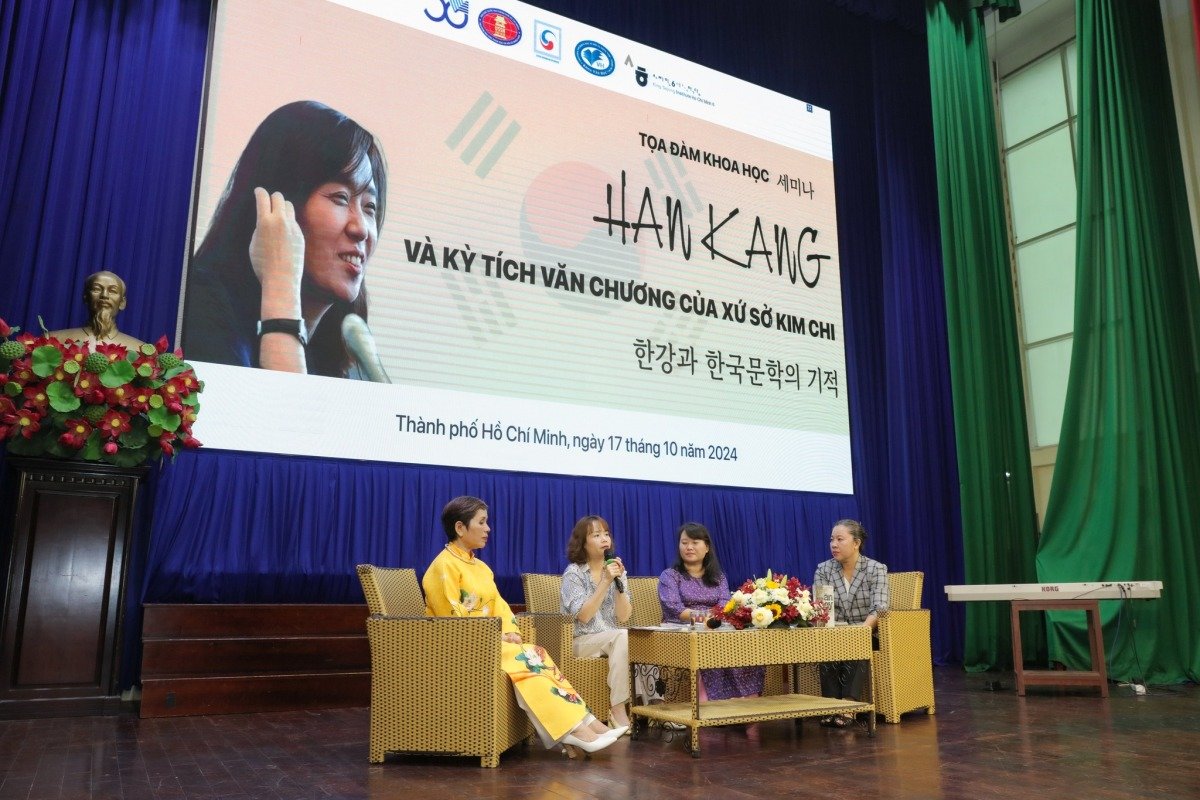Hyundai submits new self-rescue package to Korea Exchange Bank
Hyundai submits new self-rescue package to Korea Exchange Bank
Posted November. 02, 2000 19:03,

Financially troubled Hyundai Engineering and Construction Co. (HEC) Thursday notified its main creditor, Korea Exchange Bank (KEB), of its new self-rescue measures, which feature the sell-off of Sosan farm and the donation of personal assets by Hyundai Group founder Chung Ju-Yung and Chung Mong-Hun, chairman of the Hyundai Asan board of directors.
Hyundai will announce the measures as soon as its negotiations with the KEB are concluded.
Earlier, presidents of Hyundai affiliates, led by Chung Mong-Hun, held an emergency meeting at the conglomerate's headquarters in Kye-dong, downtown Seoul, and resolved to present "positive" rehabilitation programs. The affiliates include HEC, Hyundai Electronics and Hyundai Merchant and Marine Co.
Chairman Chung was learned to have expressed his strong will not to give up HEC, but to revive it by donating his personal assets, among other things, in telephone conversations with leading members of the group. Chung returned home in the evening from an overseas trip.
Hyundai prepared a self-rescue plan that can meet the demand of the government and creditor banks to raise an additional 400 billion won. But it has not yet made public a concrete plan for the size of chairman Chung's donation of his personal property, which depends on the government's purchasing price of the Sosan farm, built on reclaimed land on the west coast.
The self-rehabilitation measures include the sell-off of Sosan farm; the sale of former honorary chairman Chung Ju-Yung's stake in Hyundai Motor (2.69 percent); participation in the paid-in capital increase of the HEC; and the sale of some of chairman Chung's stakes in HEC (1.7 percent), Hyundai Merchant and Marine (4.9 percent) and Hyundai Corporation (1.22 percent).
Instead, Hyundai plans to purchase 16 percent of the total 23.86 percent stake of Hyundai Merchant and Marine owned by HEC with the proceeds from the sale of the shares to maintain managerial rights.
As for the price of the Sosan farm, Hyundai, noting that the construction of the reclaimed farm cost 642.1 billion won (officially appraised at 670 billion won), is demanding that government offer a similar price.
But the government is maintaining that it cannot pay more than 220 billion won, which accounts for about 66 percent of the publicly declared land value.
Hyundai raised 700 billion won out of the total 1.6 trillion won it promised to create for the HEC, which suffers a serious liquidity problem. Including the additional 400 billion won contained in the self-rescue plan, Hyundai has to secure 900 billion won in cash by the end of this year to pay the maturing debts.
Hyundai is also strongly demanding that creditors roll over the maturing debts for two months because it will raise an additional 400 billion won through the new self-support plan.
Meanwhile, Chairman Chung returned home at 6:30 p.m. via a Singapore Airlines flight.
Headline News
- Presidential Office signals possible offensive weapons aid to Ukraine
- N. Korea reportedly prepares military balloon attack with Russia
- Medical associations join bipartisan talks on expanding medical school quotas
- Former world No. 1 Ko Jin-young returns to LPGA
- Kakao unveils AI service ‘Kanana’ at 'if Kakao AI 2024'







